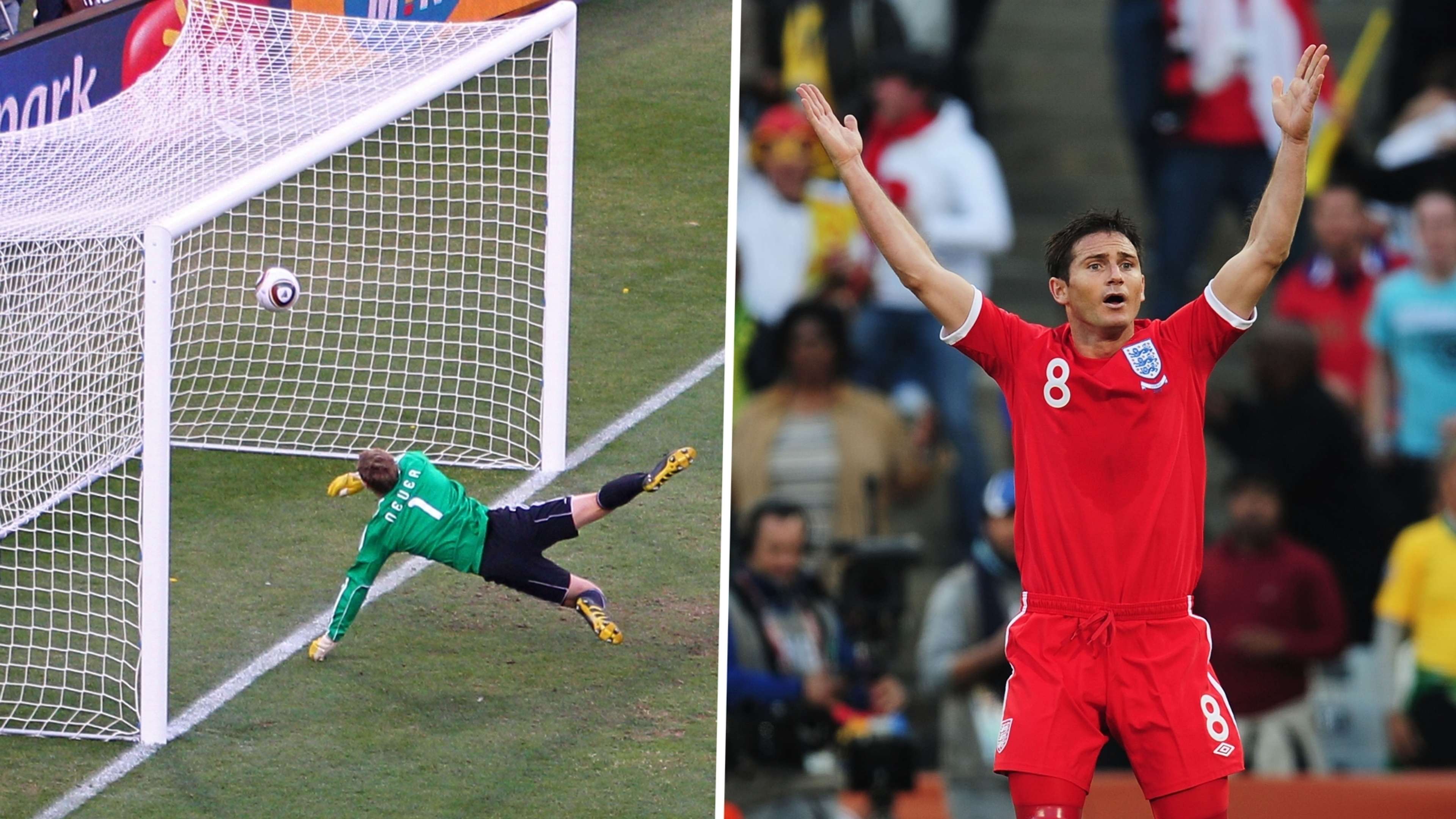Ghost goals and the controversies that surround them make up a big part of football - with some goals having the ability to determine the entire outcome of a competition despite some officials conceding that they may not have crossed the line.
The 2018 World Cup was the first time VAR and goal-line technology was used in such a tournament, and before then, there was no way to tell whether or not a ball had officially crossed a line or not, leading to much fussing and quarelling even years after the incident.
So what exactly is a ghost goal? Goal takes a look.
What is a ghost goal?
The term 'ghost goal' entered the common football vernacular after Liverpool's semi-final win against Chelsea during the 2004-05 Champions League.
Jose Mourinho, who was manager of Chelsea at the time, popularised the term following the controversial circumstances involving Luis Garcia's goal in the second leg at Anfield that handed Liverpool the 1-0 aggregate victory.
“It was a goal that came from the moon – from the Anfield stands," Mourinho said at the time.
"I felt the power of Anfield, it was magnificent. I felt it didn't interfere with my players but maybe it interfered with other people and maybe it interfered with the result."
What happened during Germany vs England at World Cup 2010?
A classic example came in England and Germany's knockout game during the 2010 World Cup in South Africa, when Frank Lampard's shot struck the crossbar and crossed the goal line before it bounced back into the field again.
Neither Germany goalkeeper Manuel Neuer nor the referee acknowledged the goal, which would have been an equaliser for England to tie the game 2-2. The Three Lions went on to lose the match 4-1 and were booted out of the tournament in humiliating fashion.
After the game, Lampard said: "I don't think much about it. I can't see much point in having sleepless nights about it.
"It changed the game for the better, so I'm pleased about that. It's a positive move for the game as a whole with the introduction of goal-line technology."
What happened during Chelsea vs Liverpool?
The referee awarded the goal, but even on video playback, the angles of the camera make it difficult to see if the ball truly crossed the line.
Lubos Michel, the referee, indicated the goal had been scored after seeing the reaction of his assistant referee.
But according to Mourinho, it was not obvious if the ball had indeed made it over the line, describing it as a 'ghost goal'. Garcia's goal was decisive in allowing Liverpool to progress to the finals of the tournament in Istanbul against AC Milan. The Reds ended up winning the competition for the fifth time in epic circumstances dubbed the 'Miracle of Istanbul'.
Even if the referee had not awarded Garcia's goal to Liverpool, he would have awarded Liverpool a penalty kick and sent Chelsea goalkeeper Petr Cech off due to his foul against Milan Baros.
Mourinho has continued to talk about the ghost goal well after the fact, based on his incredulity that a crucial tie was decided on a goal that, to him, should not have counted.
In an interview recalling the worst moments of his managerial career, he referenced the Garcia goal, stating that in the day and age of VAR, it would not have counted.
"It was against Liverpool with a goal that today the VAR would not have conceded," Mourinho said in 2020.
As a result, former Liverpool players have continued to haunt the Portugal coach about the ghost goal years later, with Jamie Carragher and Garcia himself taking every opportunity to milk not just the outcome of the semi-final, but the fact that they ended up winning the entire Champions League outright.
But even Garcia himself has since admitted that he wasn't sure if the goal actually crossed the line.
“That's the question, isn't it? I should ask for a penny every time someone asks me that,” he told the Guardian in 2014.
"For me it was and the referee gave it so. If I am being honest, I remember the feeling of hitting the ball and when I saw the bounce going up I turned away and celebrated."
Classic ghost goal and goal-line incidents
Before the introduction of VAR, ghost goals and did-they-didn't-they goals were far more plentiful.
During the 2019-20 season in the Premier League, Sheffield United player Oliver Norwood's free-kick was carried past the goal line by Aston Villa shot-stopper Orjan Nyland after a clash with Keinan Davis .
But despite goal-line technology and VAR used in the game, neither awarded a goal for Sheffield United. Hawk-Eye, who operate the technology, issued an apology that no goal was given and cited the cameras being blocked by the players.





